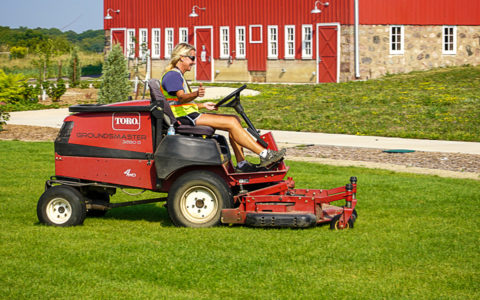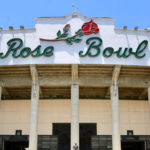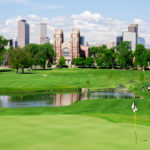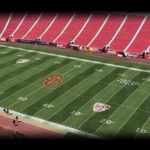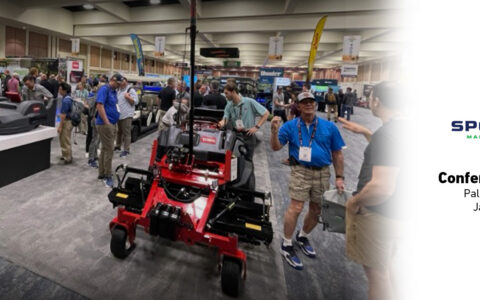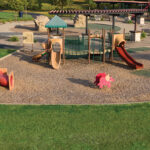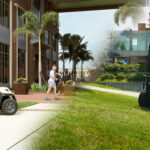Iconic Grounds: Lincoln Financial Field
This is the first in a series of articles featuring premier facilities across the U.S. that partner with Toro for equipment and support. Watch for future issues of Grounds for Success to get an inside look at the unique needs and challenges of these iconic grounds.
Lincoln Financial Field is the home of the Philadelphia Eagles. But did you know it’s also the stadium where Temple University’s Temple Owls play all their home games … and the primary home of the Army-Navy football game as well?
We talked with Philadelphia Eagles Director of Grounds Tony Leonard to learn more about his facilities and the challenges he faces today — and we discovered a few things that might surprise you. Here’s what we learned from our conversation.
The “Linc”
is a busy place.
In addition to football, the stadium hosts a number of events ranging from
soccer games to monster truck shows to major concerts during the summer months
— which can be tough on the natural grass field. Fortunately, according to
Leonard, they have great relationships with area sod farms.
“We’re able to grow a field on our sod farm as if it were in the stadium, so when we do need to bring it into the stadium, we can plant it and play on it within a week — sometimes less,” Leonard says. “We can flip from a Taylor Swift concert to a major soccer game three days later, and then to an NFL game the next night.”
That may sound like a lot of work for one event, but it comes down to economics. In most cases, Leonard says the revenue potential more than justifies the cost of replacing the field.
Weather can
be a challenge.
Leonard and his team not only maintain the field and landscaping at the
stadium, but also three natural grass fields, an indoor fieldhouse and all the
landscaping at the NovaCare Complex practice facility.

When asked about the biggest challenge they face, Leonard was quick to answer: Weather. “That’s the biggest unknown,” Leonard says. “It could be 90 to 95 degrees when the season starts and 20 degrees when it ends. But we haven’t had to clear snow off our stadium field or the stands on an NFL game day for five years — and that’s a major undertaking. The field alone is two acres, plus you have all the snow coming down from the stands.”
Attitude
matters.
No matter what the challenges are, the staff work together to find a
solution. “Our facilities department is a tight-knit group. We all benefit from
each other. And we know we need to be successful on the business side to help
support the team,” Leonard explains. “When we get requests for events, we’ll
discuss the challenges as a group. There are a lot of logistics to work out,
and we have a can-do mentality at our stadium. We don’t look at the negative
and say, ‘we can’t do this;’ we figure out how we can — and whatever it
takes, we just do it.”
There’s a
science to safety.
Beyond mowing and watering the grass, there’s a significant amount of
sports science that goes into managing professional football grounds. Today’s
NFL fields must meet strict guidelines for player safety, and Leonard says that
has benefited the game. “It’s taken the fields to a whole different level — not
just natural grass fields, but synthetic fields as well,” he says.

To ensure those guidelines are met, Leonard and his crew perform tests including the Clegg Impact Test for surface hardness, moisture testing, and shear vane testing for surface stability (which can help determine which cleats will perform best on the field). They not only certify that the field meets NFL standards prior to each game, they also do visual and player ratings after the game.
Pandemic
strategy: Keep an open mind.
In addition to Leonard, the
grounds staff includes four other full-time professionals, who Leonard credits
the most with balancing the practice facility and stadium maintenance along
with equipment and landscape maintenance.
During a typical year, the facility would also have three
season-long interns from May through about the beginning of January. But this
hasn’t been a typical year.
Activities at the stadium were scaled back as early as the spring of 2020, when there were no practices or OTAs (organized team activities). “The biggest theme of this year is ‘be open and be ready,’” Leonard says. For example, they’ve had to find solutions for holding practices and team meetings while maintaining social distancing and keeping the facilities clean and ready.
Although some things have changed, the requirements of the field have not. “Whether there are no fans or 80,000 fans in the building, the wear and tear on the field is the same,” Leonard says. “We still have to maintain the standards of the NFL and the NFL Players Association — to provide a safe playing surface for the athletes that’s also presentable both on TV and in person for the teams.”

Relationships
make a difference.
Leonard’s equipment fleet includes Toro® Reelmaster® mowers,
Workman® HDX and MDX utility vehicles and Multi Pro®
sprayers. One set of dedicated equipment is kept at the stadium, and one set is
kept at the practice facility, with some machines (such as aerators, sweepers
and blowers) being used interchangeably.
For Leonard, the relationship he has with his local Toro distributor is just as important as the equipment. “Hosting all kinds of events, putting the players out on a safe surface to play football and keeping everyone happy takes a lot of help from a lot of different people,” he says.
“You have to build relationships to be successful, and that includes our relationship with Turf Equipment and Supply — whether it’s with the parts department, the service department or the sales department. From Toro as a company all the way down to Turf Equipment and Supply, they’ve been tremendous assets. We’ve been able to say, ‘Here’s what I’m looking to do to the field. What can you help me with?’ and they’ve been able to provide those answers and the products we need for what we’re trying to accomplish.”
Watch for more Iconic Grounds profiles in 2021.
Follow @ToroGrounds on Twitter for updates and more Iconic Grounds series articles throughout 2021.
NFL is a registered trademark of the National Football League. Team names are registered trademarks of the teams indicated.
